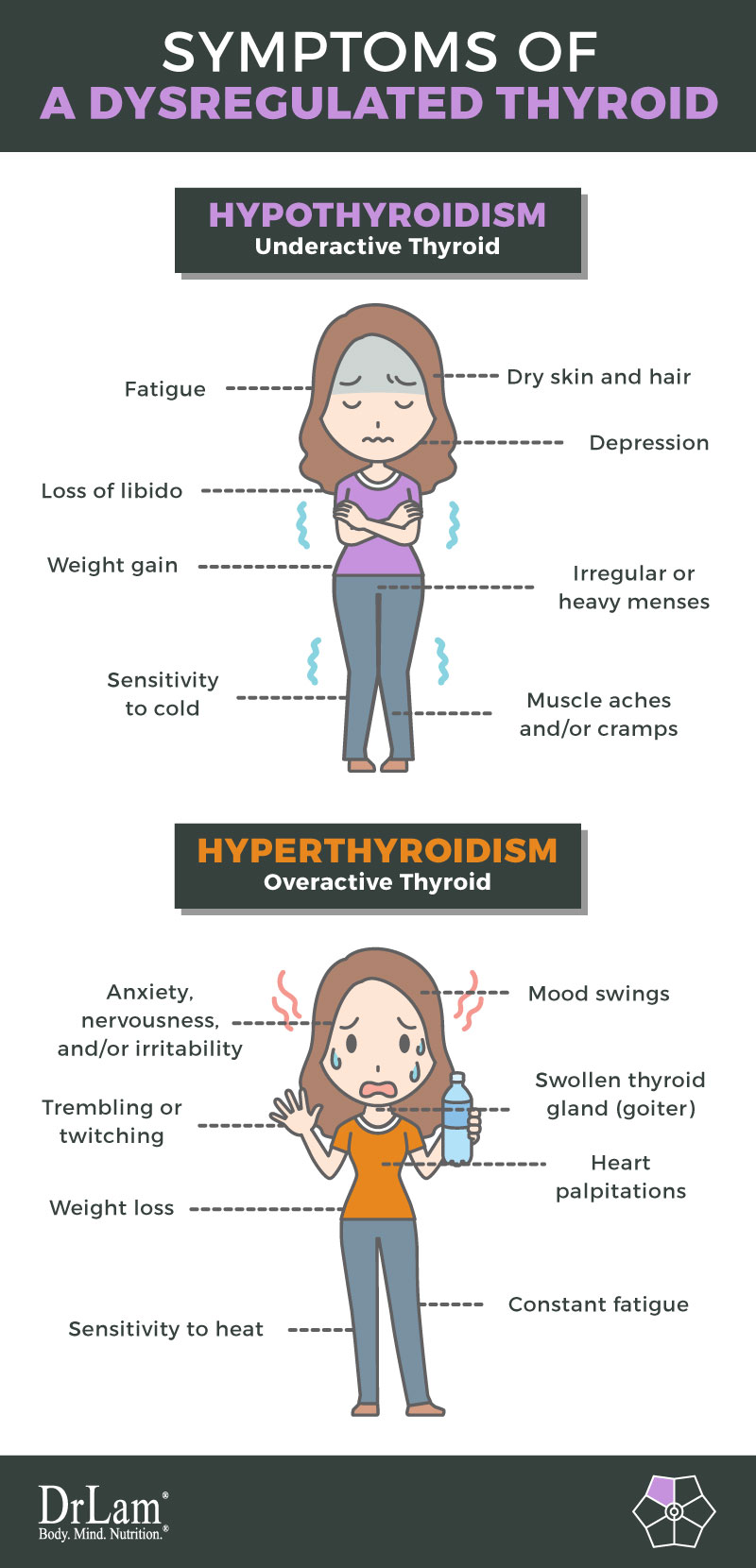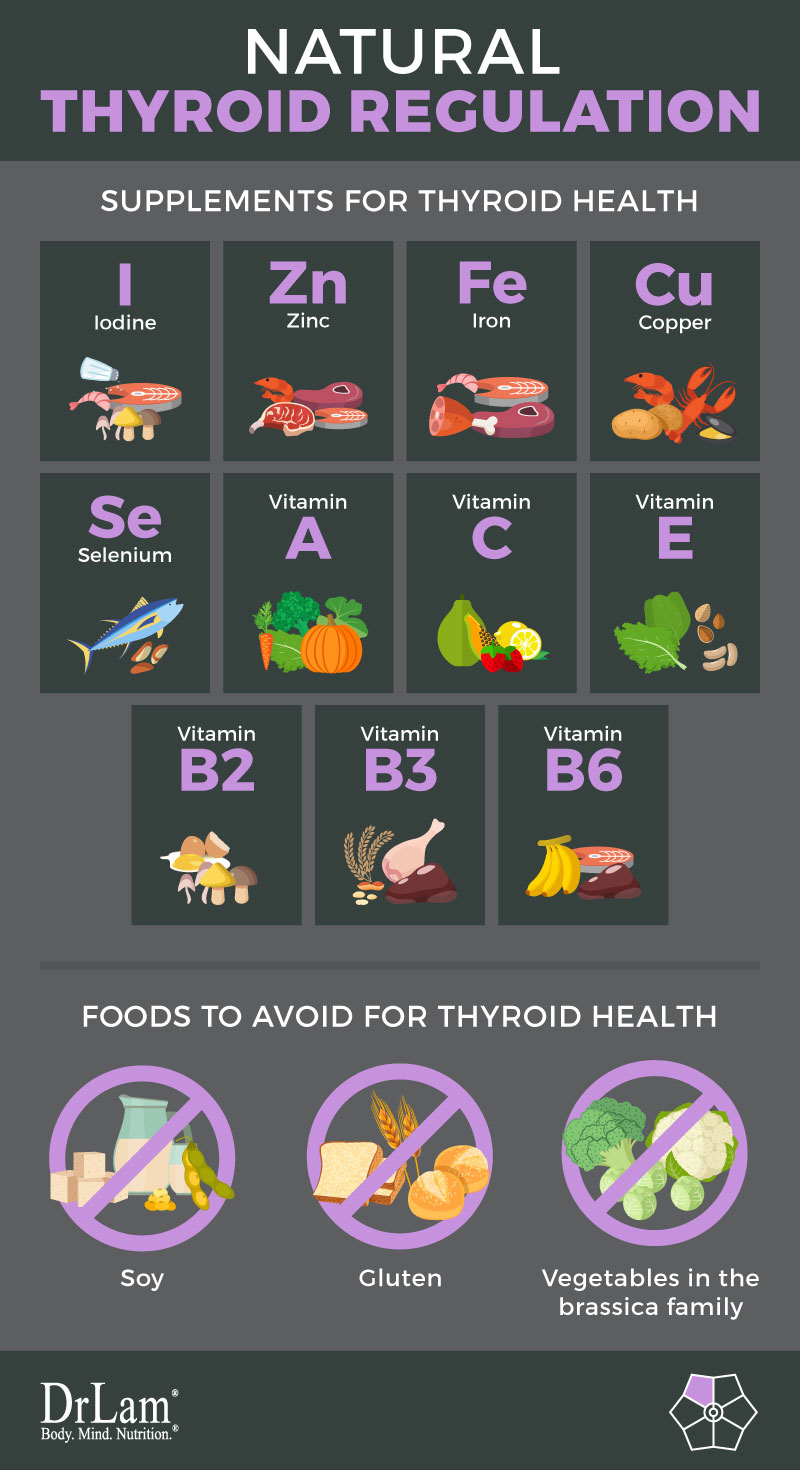 While more and more people are finding they have hormonal imbalances or thyroid problems, many people are also complaining about how stressed they are due to their job, relationships, health, or finances. What many people do not realize, however, is that there is a definite correlation between stress, natural thyroid regulation, and your hormones. More often than not, chronic stress is the cause of thyroid issues and the accompanying hormonal problems often resulting from the condition. However, with natural supplementation, it is possible to heal your thyroid heal naturally.
While more and more people are finding they have hormonal imbalances or thyroid problems, many people are also complaining about how stressed they are due to their job, relationships, health, or finances. What many people do not realize, however, is that there is a definite correlation between stress, natural thyroid regulation, and your hormones. More often than not, chronic stress is the cause of thyroid issues and the accompanying hormonal problems often resulting from the condition. However, with natural supplementation, it is possible to heal your thyroid heal naturally.
People tend to think that when you get “stressed out”, your emotions come into play, and you eventually experience problems such as depression. While this is true in some cases, emotional stress is not the only type of stress around. Stress falls into different categories, including psychological stress (emotional and mental), physiological stress (to the physical body due to an illness or an accident), and environmental stress (due to factors such as pollution or chemicals in food). All of these types of stress can be present at once, and they are factors to which your body must respond to remain healthy.
The stress response is sometimes seen as a direct correlation between a stressor and the response in a single organ. However, in reality, many different systems are involved in managing stress. The NeuroEndoMetabolic (NEM) Stress Response is a more comprehensive way of describing how the body systems handle stress.
If your body is unsuccessful at quelling severe stress, conditions such as Adrenal Fatigue Syndrome (AFS) or thyroid dysregulation can result.
Interestingly, hypothyroidism (where the thyroid gland is working at a subpar level) and stress both present an astonishing number of similar symptoms, such as weight gain, constant fatigue, and mood swings, to name but a few.
Cases of very high stress levels, for example undergoing major physical stress due to a heart attack, can unleash what is referred to as a “thyroid storm”. Symptoms associated with a thyroid storm are rapid heartbeat, vomiting, diarrhea, and tremors. In instances where this occurs, medical attention is required.
Besides stress, compromised blood sugar levels and poor gut health also contribute to a disruption in natural thyroid regulation. Both these conditions are also linked to adrenal fatigue.
When the body is under stress, glucose is released into the blood to give you the energy to either fight or run. However, the long-term production of glucose leads to an imbalance in your body’s blood sugar levels and increasing insulin resistance which, in turn, has a negative effect on thyroid health.Natural thyroid regulation depends on keeping your blood sugar levels within a normal range. It may not be a coincidence that so many diabetics have impaired thyroid function.
Poor gut health also influences thyroid health. It suppresses thyroid function and may result in autoimmune diseases, such as Hashimoto’s. In turn, low thyroid function may lead to irritable bowel syndrome (IBS), also commonly referred to as leaky gut. But IBS is also linked to adrenal fatigue and a constant, heightened production of cortisol (typically due to stress).
Inflammation is one of the body’s NEM stress responses, and one of the areas affected is the gut. During the early stages of AFS, the body’s cortisol production suppresses inflammation. However, as the latter stages of the condition are reached, less cortisol is produced and inflammation is rife. This inflammation in the gut causes the gut lining to become permeable, and foreign objects which are not normally allowed through the lining pass into the bloodstream.
Under normal conditions, the thyroid hormones serve to regulate other hormones that play an important role in fighting infection and protecting the gut. However, when natural thyroid regulation is compromised, these thyroid hormones are not in a position to do so. Likewise, a compromised gut biome has a negative effect on thyroid health.
The hormones produced by the thyroid gland are essential for nearly every cell in your body, which they reach via your bloodstream. These hormones regulate the speed at which your cells work and aspects as your heart rate and how you process food in your intestines.
Correct natural thyroid regulation is thus essential for optimal health. Symptoms of an underactive thyroid, also known as hypothyroidism (where the thyroid does not produce enough thyroid hormones), include:

In contrast, when you have an overactive thyroid (hyperthyroidism), your thyroid gland produces too much thyroid hormones. Symptoms associated with this condition include:
Natural thyroid regulation and hormone production thus play an important role in your continued health. When the regular functioning of this gland is compromised, symptoms of hypothyroidism or hyperthyroidism may appear, having a debilitating effect on your health.

Natural thyroid regulation involves selenium-based proteins helping with the regulation of hormone synthesis. They convert T4 into T3 and help with your body’s metabolic regulation. Because metabolic regulation is the business of the thyroid gland and dependent on healthy, natural thyroid regulation, thyroid health should be a priority.
Some supplements can help naturally regulate your thyroid function.
Iodine is probably the most important trace element needed for natural thyroid regulation. It is the building block of the thyroid hormones which are essential for supporting all your body tissues.
Great sources of iodine include:
Low zinc levels cause lower levels of thyroid hormones. Both hyperthyroidism and hypothyroidism may cause a zinc deficiency, which in turn, leads to a lower concentration of thyroid hormones.
Sources of zinc:
Beef, lamb, sardines, soybeans, pecan nuts, whole grains, split peas, ginger, almonds, and sunflower seeds.
Low iron levels may also negatively impact natural thyroid regulation.
Sources of iron:
Spinach, pumpkin seeds, white beans, soybeans, clams, oysters, and organ meats.
Copper is necessary for the production of thyroid hormones. Research indicates that low copper levels may be linked to high cholesterol and heart disease in those suffering from hypothyroidism.
Sources of copper:
Beef, sunflower seeds, white beans, chickpeas, soybeans, pearled barley, dark chocolate, oysters, crabmeat, and lobster.
 Antioxidants help temper oxidative stress, combat degenerative diseases, and help combat the aging process. These include vitamins A, C, and E.
Antioxidants help temper oxidative stress, combat degenerative diseases, and help combat the aging process. These include vitamins A, C, and E.
Sources of vitamin A (beta-carotene):
Broccoli, kale, asparagus, sweet potatoes, carrots, pumpkin, cantaloupe, and liver.
Sources of vitamin C:
Strawberries, papayas, and citrus fruit.
Sources of vitamin E:
Sunflower seeds, almonds, peanuts, beans, asparagus, leafy green vegetables, and liver.
The B vitamins are essential in the manufacture of T4, a major thyroid hormone.
Sources of vitamin B2:
Egg yolks, mushrooms, almonds, and wild rice.
Sources of vitamin B3:
Wheat bran, rice bran, liver, peanuts, and poultry.
Sources of vitamin B6:
Trout, tuna, salmon, liver, brown rice, sunflower seeds, bananas, soybeans, lima beans, navy beans, and pinto beans.
Enzymes that contain selenium protect the thyroid gland during periods of stress. It helps rid the thyroid of oxidative and chemical stressors which have a negative impact on your biome. Proteins with selenium as their base also help regulate thyroid hormone synthesis, managing your metabolism while maintaining your blood and tissue thyroid hormone balance. Selenium also helps with the regulation of your body’s iodine stores.
Sources of selenium:
Beef, tuna, organ meats, soybeans, mushrooms, sunflower seeds, and Brazil nuts.

Not all foods are good for the thyroid. Unfortunately, some foods can also disrupt natural thyroid regulation and should be eaten in moderation.
Soy contains isoflavones which may inhibit the enzymes that use iodine for your thyroid hormones. If, however, your iodine levels are not low, eating natural soy should pose no problems, as it has many helpful nutrients. Soy is also of great benefit in the regulation of menopausal issues in women.
There may be a significant connection between celiac disease, autoimmune thyroid problems, and gluten. Gluten can trigger digestive problems and cause hormonal imbalances.
 Although vegetables in the brassica family, including Brussels sprouts, broccoli, and cauliflower, are in rich in certain vitamins and minerals, they also tend to affect the thyroid gland in much the same way that soy does. They inhibit enzymes that use iodine. When eating them, it is thus always better to pair them with foods that are rich in iodine to get their benefit without losing out on your iodine stores.
Although vegetables in the brassica family, including Brussels sprouts, broccoli, and cauliflower, are in rich in certain vitamins and minerals, they also tend to affect the thyroid gland in much the same way that soy does. They inhibit enzymes that use iodine. When eating them, it is thus always better to pair them with foods that are rich in iodine to get their benefit without losing out on your iodine stores.
If you plan to use natural thyroid support compounds, it is important to know that these tend to be stimulatory in nature. They work by enhancing metabolism. However, those with advanced adrenal fatigue may not do well with such support. The more advanced the fatigue, the greater the risk of adrenal crashes, anxiety, insomnia, heart palpitations, and panic attacks. If you have advanced adrenal fatigue, it is important to see an experienced professional to address thyroid issues in a gentle way to avoid these complications.
The thyroid plays a major role in our health, seeing to our metabolic regulation and playing a role in our immune system. Natural thyroid regulation is vital for maintaining good health. By supporting the thyroid gland, we ensure a healthy biome. Therefore, it is essential to find the right balance between what we eat, supplements, and stressors, to maintain a healthy thyroid and body.
Iodine is necessary for the production of the thyroid hormones. Although an iodine deficiency does not cause adrenal fatigue, it certainly has a negative effect on thyroid function and thus the production of thyroid hormones.